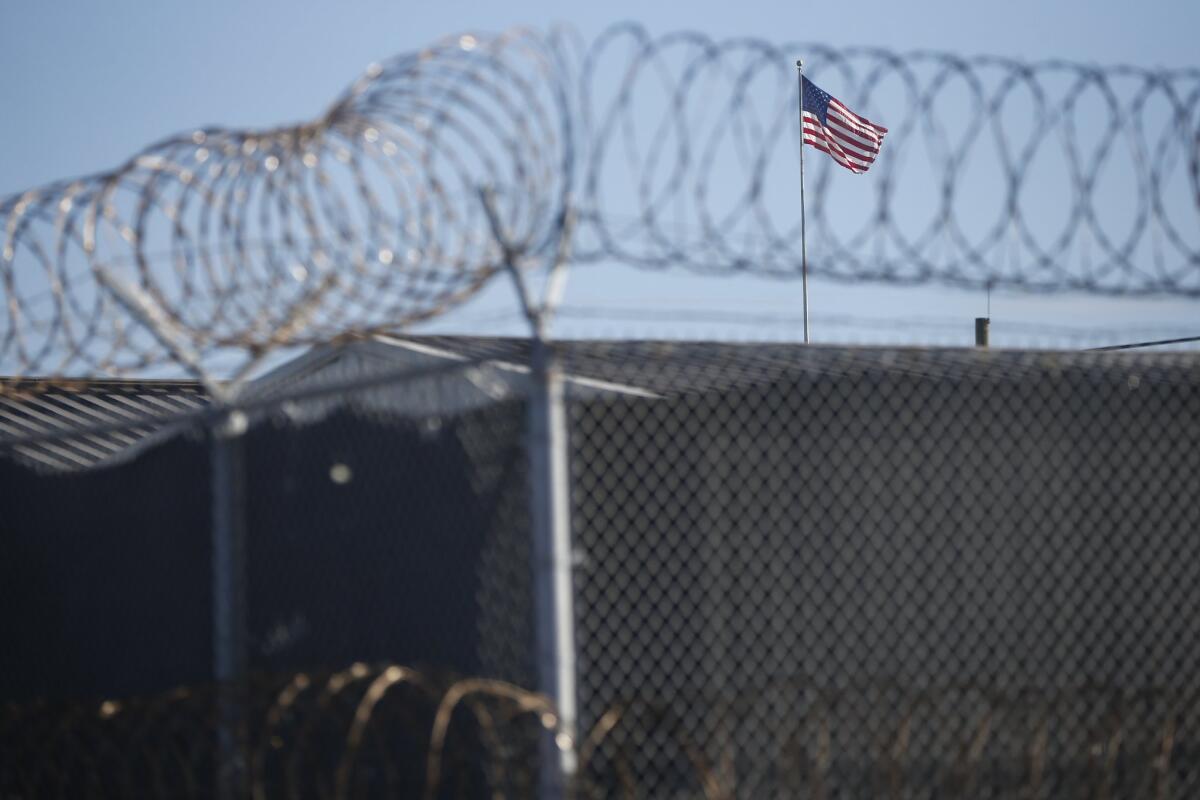‘Doesn’t make any fiscal sense’ to keep Guantanamo open, Homeland Security chief says

A U.S. flag flies above buildings used for military tribunals for suspected terrorist prisoners at the naval base at Guantanamo Bay, Cuba, on Nov. 19, 2013.
- Share via
Reporting from Aspen, Colo. — Secretary of Homeland Security Jeh Johnson urged a reluctant Congress on Thursday to allow the Obama administration to close the prison for terrorism suspects at Guantanamo Bay, Cuba, and to transfer the last 116 detainees to facilities on American soil.
President Obama has sought since he took office in 2009 to empty the controversial detention facility, which was set up after the 2001 terrorist attacks. But fierce resistance in Congress, where lawmakers say the facility safeguards Americans, shows no sign of abating.
More than 700 inmates have been held at Guantanamo Bay, at a cost of more than $5 billion, since it opened in 2002. At least some of those released have rejoined terrorist groups overseas.
Speaking at a national security conference here, Johnson said it “doesn’t make any fiscal sense” to pay nearly $900,000 per year to house each prisoner, for a total cost of more than $100 million a year. It costs the government about $80,000 a year to incarcerate an inmate in a high-security federal prison.
The shrinking population at Guantanamo Bay, as inmates are transferred to other countries for custody or release, has not produced significant savings, Johnson said. The number of inmates has fallen from 242 in 2009 to 116 today.
He also echoed Obama’s frequent charge that the failure to bring any of the inmates to trial has undermined America’s image overseas, especially because civilian courts have successfully prosecuted and convicted dozens of terrorism suspects.
“In my view, it continues to be a black mark on what this country should be about, and we want to close it,” Johnson said.
White House Press Secretary Josh Earnest said Wednesday that the administration “is in the final stages of drafting a plan to safely and responsibly close the prison at Guantanamo Bay and to present that plan to Congress.”
Johnson acknowledged that those remaining at Guantanamo Bay “are probably the toughest cases.” They include some of the original 9/11 plotters and other high-profile figures who were subject to waterboarding and other interrogation tactics that critics call torture.
“We ought to have a plan for transferring the remaining detainees to the U.S. with appropriate protections consistent with law, and those that are being prosecuted and continue to be prosecuted, we should continue with that,” Johnson said.
“I know from numerous conversations that this president is very committed to closing Guantanamo Bay and does not want to leave this to his successor, whoever that may be,” Johnson said.
Twitter: @ByBrianBennett
More to Read
Sign up for Essential California
The most important California stories and recommendations in your inbox every morning.
You may occasionally receive promotional content from the Los Angeles Times.










